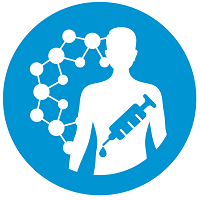Preclinical, Clinical, and Translational Sciences
Symposium: Translational Development of Diverse Drug Formulations
Oral Peptide Drug Development: Addressing Preclinical Bioavailability and PK Challenges
Wednesday, November 12, 2025
9:30 AM - 10:00 AM CT
Location: 225 AB
.jpg)
Jianping Sun (he/him/his)
Director
WuXi AppTec
Shanghai, Shanghai, China (People's Republic)
Speaker(s)
Peptide therapeutics offer high specificity and low off-target toxicity, making them promising candidates for treating a variety of diseases. However, their development is often hindered by challenges such as poor oral bioavailability, rapid degradation, and short circulation time. These pharmacokinetic hurdles present significant obstacles in achieving effective systemic exposure and therapeutic efficacy especially for oral administration. To mitigate these challenges, it is essential for researchers to systematically optimize drug metabolism and pharmacokinetic (DMPK) properties, thereby enabling peptide therapeutics to achieve optimal clinical efficacy.
This proposed symposium will delve into key strategies employed during early-stage development to overcome these limitations, from in vitro assay selection, formulation screening, tailored sample processing, analytical techniques, and preclinical PK study design.
It will begin by discussing the importance of selecting appropriate in vitro assays that adequately assess physicochemical properties, stability, and permeability. A thorough understanding of peptide physicochemical characteristics is essential, as these attributes critically determine solubility and permeability within the gastrointestinal tract. Next, it will explore innovative formulation strategies designed to enhance oral absorption. This includes the use of permeation enhancers, enteric coating, and delivery systems that can improve the oral absorption of peptides. Additionally, the symposium will cover tailored sample processing and analytical techniques that can optimize the pharmacokinetic profile of peptide drugs. By refining preclinical study designs, researchers can better assess the impact of formulation strategies on systemic exposure and therapeutic outcomes. Moreover, the symposium will feature case studies highlighting successful peptide drug development programs that have effectively navigated these challenges.
In conclusion, this symposium aims to provide a comprehensive overview of the current landscape in oral peptide drug development, focusing on the optimization of DMPK properties to overcome preclinical bioavailability and pharmacokinetic challenges. By fostering collaboration and knowledge exchange, we hope to inspire innovative solutions that will advance the field of peptide therapeutics and improve patient outcomes.
This proposed symposium will delve into key strategies employed during early-stage development to overcome these limitations, from in vitro assay selection, formulation screening, tailored sample processing, analytical techniques, and preclinical PK study design.
It will begin by discussing the importance of selecting appropriate in vitro assays that adequately assess physicochemical properties, stability, and permeability. A thorough understanding of peptide physicochemical characteristics is essential, as these attributes critically determine solubility and permeability within the gastrointestinal tract. Next, it will explore innovative formulation strategies designed to enhance oral absorption. This includes the use of permeation enhancers, enteric coating, and delivery systems that can improve the oral absorption of peptides. Additionally, the symposium will cover tailored sample processing and analytical techniques that can optimize the pharmacokinetic profile of peptide drugs. By refining preclinical study designs, researchers can better assess the impact of formulation strategies on systemic exposure and therapeutic outcomes. Moreover, the symposium will feature case studies highlighting successful peptide drug development programs that have effectively navigated these challenges.
In conclusion, this symposium aims to provide a comprehensive overview of the current landscape in oral peptide drug development, focusing on the optimization of DMPK properties to overcome preclinical bioavailability and pharmacokinetic challenges. By fostering collaboration and knowledge exchange, we hope to inspire innovative solutions that will advance the field of peptide therapeutics and improve patient outcomes.
Learning Objectives:
- Upon completion, participant will be able to identify key bioavailability and pharmacokinetic barriers in preclinical peptide drug development.
- Upon completion, participant will be able to explore practical strategies to optimize DMPK properties of peptide therapeutics
- Upon completion, participant will be able to enhance understanding of assay selection, sample processing, and study design tailored to peptides.

